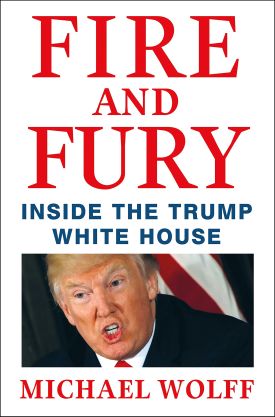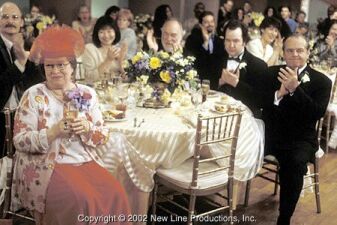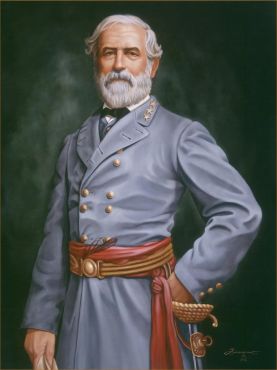Methods of Madness
From The New CriterionOn Tuesday, January 9th, The Washington Post headlined: “The White House struggles to silence talk of Trump’s mental fitness” — which all by itself gives you a pretty good idea of where the Post stands on the subject of the President’s sanity. And on just about everything else to do with him too. The article’s authors, Philip Rucker and Ashley Parker, apparently thought so highly of their own subtlety in insinuating that Mr Trump was crazy, that they tried the same trick again on Wednesday as part of what the Post laughably calls “The Debrief: An occasional series offering insights from reporters.” On this occasion, the “insight” consisted of the following:: “55 minutes at the table: Trump tries to negotiate and prove stability” — with what success, in their view, we can again infer from the headline alone.
In the background of both articles, of course, there lay the scurrilous book by Michael Wolff, Fire and Fury: Inside the Trump White House, whose shocking revelations had burned up the airwaves over the preceding weekend — though by the time of Wednesday’s article, Mr Rucker and Ms Parker had not thought it necessary to mention Mr Wolff’s gossip-mongering. The question of the President’s “stability” was now independent of the sleazy journalist who had raised it and had become merely “the question that has been nagging at him for the past week” — which the 55-minute conference mentioned in the headline had supposedly been designed to answer in a way favorable to himself. Once again, Wednesday’s “tries,” like Tuesday’s “struggles,” were meant to reassure us that the canny Post reporters, at any rate, were not fooled for a moment.
By Thursday, The New York Times’s Editorial Board were prepared to raise the question: “Is Mr. Trump Nuts?” — only to dodge it by concluding that his clinical diagnosis, if any, scarcely mattered, so horrible was he and everything he had ever done or ever would do. But the question was, as they say, “out there” since Mr Wolff had proclaimed on Sunday’s “Meet the Press,” that “it is not an exaggeration or unreasonable to say this is 25th amendment kind of stuff,” referring to the Constitutional provision for dealing with the incapacity of the President to perform the duties of his office. He added that those he had spoken to in the White House thought so too. “They would say. . . we’re not at 25th amend [sic] level yet. The 25th amendment concept is alive every day in the White House.”
Naturally, and in keeping with the media’s Trump-era standards, no one was quoted by name as saying this or anything like it. It was understood that Mr Wolff’s main source was the President’s former chief strategist, Stephen Bannon who, since his dismissal, has provided some independent confirmation of his ex-employer’s opinion that he appears to have lost his own mind when he lost his job. Likewise, another White House Stephen (Miller), who still has his, described his former colleague as an “angry, vindictive person” who was, being “so out of touch with reality,” effectively insane himself.
Like the now-ubiquitous charge of “lying” against one’s political opponents, this is not a debating point but a sign that debate has ended — as Mr Miller’s interlocutor, Jake Tapper of CNN, immediately confirmed by bringing the interview to an end on the ground that Mr Miller was merely toadying to his employer — effectively calling him a liar. That the media apparently cannot see the extent to which, by their indulgence in this kind of pointless, hateful invective, they have corrupted public debate, rendering it impotent on both sides, might almost suggest that it is really they who are insane, though it wouldn’t do to be so intemperate in one’s language as to call them so. My own view is that we are all insane since we decided that it was some kind of human right to let everyone choose his own reality — as Mr Wolff actually admitted he did when his sources contradicted one another — from which those who disagree with us can be excluded at will. Since rhetorical nuclear war broke out during the last Bush administration, the Mutually Assured Destruction has been as devastating intellectually as actual nuclear war would be physically but with only this distinction: that the victims on both sides appear to be unconscious of the destruction in question and carry on, like automatons, as if it had not happened.
It just may be, however, that Donald Trump understands this better than anyone else. I have written about an earlier scandal — who can remember which of hundreds it was? — that in Mr Trump the media see themselves reflected — and they don’t at all like what they see. As George Neumayr put it in The American Spectator: “After a year of scoffing at the claim that Trump’s supporters take him seriously, not literally, journalists are adopting essentially the same standard in their defense of Michael Wolff’s book. Sure, the book is riddled with errors, they say, but it still contains a larger “truth” about this presidency.” Mr Wolff is himself the mirror image of his nemesis when it comes to the use of hyperbolical language. While Mr Trump proclaims himself to be a “very stable genius,” Mr Wolff congratulates his own book for supposedly demonstrating that the American president was “a man who has less credibility than, perhaps, anyone who has ever walked on earth.” I love the faux modesty (something Mr Trump would never be guilty of) of that “perhaps.” Such an exaggeration (which can only be called so by understatement) is almost worthy of House Minority Leader Nancy Pelosi, who called the Republicans’ end-of-year tax reform act “Armageddon,” and almost makes Mr Trump’s “genius” seem modest by comparison.
If there is some other explanation than mass insanity for the seemingly universal failure to recognize the obvious fact that such extravagant language has become self-defeating, I would like to hear it. Ordinary people who are not passionate advocates of either side in this on-going if progressively less entertaining flyting match will merely register that the level of over-the-top bluster on both sides is approaching hysteria — which naturally works in favor of Mr Trump. For he must see and even glory in the essential phoniness of all such rhetoric as his opponents do not and cannot. To his supporters, his parody of the media’s own pompousness and self-importance must look less like vanity than it is like letting them in on a joke at the media’s expense.
I apologize for lingering so long over this latest recurrence of Watergate — and one which has since turned out to be no more than another scandal of the week. By the time you read this, Mr Wolff and the reaction to his book will only be interesting for having made apparent the willingness of the media, should Mr Robert Mueller and his team of legal sleuths fail to get the goods on Mr Trump, to accept in their stead the evidence of a backstairs gossip of no very great scrupulosity as to his unfitness to command — possibly with the assistance of a posse of Ivy League psychiatrists who have never met the President but proclaimed him non compos mentis all the same.
In fact, by the Friday morning of the same week, the rhetorical apocalypse heralded over the previous weekend had already been displaced by something much more horrifying than Fire and Fury: the President, in a private conversation in the Oval Office, had referred to certain insalubrious parts of the globe from which the people are understandably eager to migrate to this country with what “family newspapers” used to describe as “a barnyard epithet.” All such decorous restraints were thrown off when Mr Trump said the fatal word, presumably never before heard in the hallowed precincts of our halls of government, and it was repeated, repeatedly, without benefit of asterisks wherever it could be, and without regard to those tender sensibilities of younger, or feminine, readers about which editors had once been so solicitous. Who cared about them when “a White House official who asked for anonymity to describe a private conversation” had a juicy bit of potential scandal to offer? Nancy Pelosi must have been kicking herself for using the word “Armageddon” to describe a triviality like the tax reform bill when there was this to come!
Of course, it didn’t tell us anything about Mr Trump, who was only saying what many other presidents (and journalists) have said before, but, like Mr Wolff’s book, it does tell you something about the state of loyalty, honor and trust in this say-anything, “fake news” media environment. Yet if our crackerjack “investigative” and adversarial media didn’t like the insertion into the public sphere of such undiplomatic language, why didn’t they just, you know, not report it — possibly with a flea in the ear of the anonymous “official” (who turned out to be no White House official but Democratic Senator Dick Durbin of Illinois) for being a contemptible little sneak? That’s what generations of newsmen before them have undoubtedly done with the many profane or scatalogical remarks they have encountered when covering Mr Trump’s predecessors — and taken it for granted that their professionalism, not to say their patriotism, required them to do so. But then they were in the news business, while their successors have little interest in the news unless, like this news, it can be turned to some scandalous account.
It’s a redundant demonstration of the corruption of our media and political culture, of course, but it seems to me that it also goes a long way toward explaining the rhetorical incontinence of Mr Trump himself, which has been the despair of so many conservative supporters and would-be supporters. When the media seized upon the Billy Bush- Access Hollywood tape at the height of his campaign for the presidency, patently in order to kill it, he must have realized that, if he won anyway and such hostility continued (as of course it has continued), he could never have a private conversation again while there was anyone present (as when would there not be?) wishing to ingratiate himself with the media by betraying it to them. Therefore, he must have reasoned, he would have no secrets, no confidences, no private thoughts for the media triumphantly to uncover but would instead let it all hang out, as we right-on types used to say back in the sixties.
Then or earlier, conscious or unconscious, some such idea must have been in his mind. It amounted to a bold, even reckless strategy in our scandal-obsessed media culture, but it has at least paid the dividend of keeping the media’s ostentatious outrage perpetually at top volume as a distraction from any more substantive coverage of his presidency, which could only be hostile and probably more effectively so. It has also reduced the impact of any single scandalous revelation and, at the same time, exposed for all to see the media’s white-hot hatred of him and all his works — which, more and more ludicrously, they continue to deny.
That denial could also serve as the precedent for his own subsequent denial that he had said what it was being reported that he said, thus adding a further (ho hum) outrage to the ever-lengthening bill of indictment against him. Wasn’t it obvious, now, what a liar he was? Of course to them he has been a liar since he announced his candidacy. Why don’t you tell us something we don’t know? Moreover, the denial was not a lie, and not only because the original report, as even Jake Tapper admitted had been garbled in transmission. It was also an assertion, though an obviously futile one, of the President’s right to demarcate for himself a zone of privacy that the media now violate routinely and with no more compunction than Michael Wolff or Steve Bannon.
B.S. (Before Shithole), David Brooks devoted a New York Times column to “The Decline of Anti-Trumpism”:
We anti-Trumpers have our lowbrowism, too, mostly on late-night TV. But anti- Trump lowbrowism burst into full bloom with the Wolff book. Wolff doesn’t pretend to adhere to normal journalistic standards. He happily admits that he’s just tossing out rumors that are too good to check. . .The ultimate test of the lowbrow is not whether it challenges you, teaches you or captures the contours of reality; it’s whether you feel an urge to share it on social media. In every war, nations come to resemble their enemies, so I suppose it’s normal that the anti-Trump movement would come to resemble the pro-Trump movement. But it’s not good. I’ve noticed a lot of young people look at the monotonous daily hysteria of we [sic] anti-Trumpers and they find it silly. This isn’t just a struggle over a president. It’s a struggle over what rules we’re going to play by after Trump. Are we all going to descend permanently into the Trump standard of acceptable behavior?
Of course, as a paid up member of the anti-Trump media, Mr Brooks can’t quite see that the emulation works the opposite way: the Trumpists are merely condescending to the low standards of discourse already reached by the media, which have dropped their own standards not in response to Mr Trump but to the challenge of “lowbrow” social media.
As we can see from this column, Mr Wolff has made his own contribution to the Trumpian effort to discredit the media by reinforcing in the popular mind the Trump narrative about his war on “Fake News.” Mr Wolff himself admits that, in the book, his standard of truth has been: “if it rings true, it is true” — which turns out to be the same test applied to the book itself by those for whom it doesn’t ring true. Accordingly, outside of the hysterical media, there was no groundswell of support for invoking the 25th amendment or anything like it, just as there was no general acceptance, except among his most vociferous detractors, that the President was (as the media were constantly calling him) a liar. People just figure that each side is calling the other vile names not because they are true but because that is how the political game is played these days. And they are right to think so.
Likewise, in the unlikely event that someone out in flyover country should pick up a copy of Politico and read the headline: “Washington’s growing obsession: The 25th Amendment” he would be right to be skeptical, since he would already be well aware that, to Politico as to other members of the Washington-New York-West Coast media, “Washington” means themselves and not anyone like him. “Fake News” in fact amounts to just this: news chosen not because it is important or interesting or even because it is news but because it advances the agenda of the news-writers. And even flyover country is not so “lowbrow” that it can’t see the difference between that and real news.
Discover more from James Bowman
Subscribe to get the latest posts to your email.







